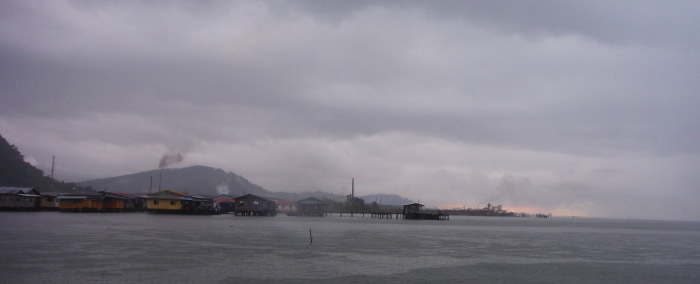Palm oil, or oil palm as the locals refer to it, is a pretty contentious issue whether you live in Sabah or residence in the United States. Over the past few days we’ve had a crash course into the history and contemporary growing and manufacturing of palm oil in Sabah region of Borneo, Malaysia.
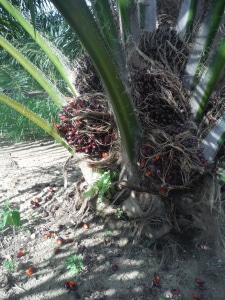
When taking the bus from Kota Kinabalu to the Tungog Eco-Camp you first pass through the misty jungle dense mountains of Mount Kinabalu, but soon you emerge into the low land area that is densely populated in palms. Most environmentally inclined are distraught at this sight and be woe the loss of the rainforest. This sadness is quickly turned against the palm plantations as the perceived destroyers of the virgin rainforest. In truth however, much of the land Palm Oil occupies was already severely degraded from the timber industry that took off in the 1960’s. Also, in 1968 Sabah passed an act that made over fifty percent of Sabah protected forest with forty percent zoned for agricultural use (in contrast 13.9% of the United States is protected). Palm oil has a host of good benefits. It can bring good economic options to those in rural communities which can lessen the impacts of over fishing, and provides jobs other than timber. It has, at least in Sabah, increased education rates partly as a function of the regularly of income from palm oil and from taking away the seasonally that traditional farming requires. Now some of these people are returning to their villages with degrees to help conserve the land. What more, palm uses mostly herbicides and very little pesticides which is also more environmental friendly than other oil crops. Plus, palm oil produces about 25 times more oil per-hectare than soybean oil.
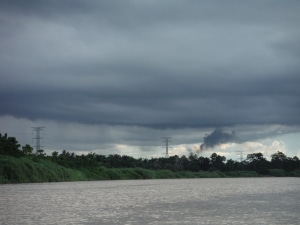
However, all that glitters aint’ gold. The palm oil in Sabah has some serious and legitimate concerns that affect both the environment and people. Much of the environmental laws passed exempt oil palm and regulation of the ones that do apply are loose at best. This has led to palm planted in areas that are too steep (resulting in increased sedimentation into the river), hydrological alterations (draining seasonal swap areas), and encroachment onto protected areas such as directly next to the Kinabatangan River. Additionally at some oil palm plantations the palm are watered with essentially aerated sewage. Which may or may not affect the oil, I’m not sure, but has caused at times large amounts of sewage to float down the Kinabatangan River. Specifically at the Tungog Eco-Camp they recalled a recent event where over a one kilometer stretch was sewage.
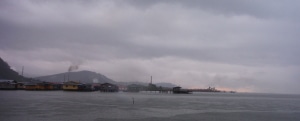
There are people working to improve the oil palm industry at well. The Roundtable on Sustainable Palm Oil is a platform where non-governmental organizations, palm oil growers, producers, consumer good manufactures, retailers, and others work together to create a certification of sustainability for palm oil. They support smallholders and have a commitment to improving communities. As of 2015 21% of the global palm oil market was certified sustainable. There are also strict guidelines on planting and best management practices which are revised every five years. Check out how the certification works if you’re interested in learning more!
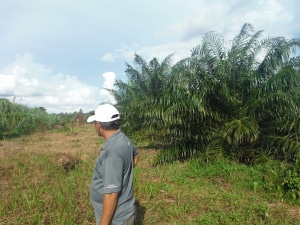
In general I think palm oils economic and social benefits are much needed, but environmental loop holes closed to protect an increasingly volatile ecosystem. A great start would be to enforce current regulations, then the creation of stronger regulation with fines that would actually deter a company from breaking them, but it’s a long battle and a hard sell. Oil palm has great potential but currently it falls very short. Tropical rainforests are some of the most unique, beautiful, unexplored, and benefited environments. Keeping them thriving should be a moral imperative.
It’s Palm-licated…
-John Dilger
